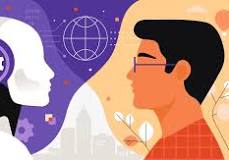Machine translation, like pointing your phone at a foreign menu, has rapidly improved, yet its role in literary translation sparks debate. Dutch publisher Veen Bosch & Keuning’s plan to use AI for commercial fiction faced backlash from authors and translators, highlighting the nuanced craft of translation: cultural adaptation, wordplay, and precise terminology.
Translators argue AI’s lack of cultural sensitivity leads to errors requiring extensive human intervention. Author Juno Dawson recalls how a translator’s outdated term was corrected pre-publication—a nuance AI might miss.
However, AI shows potential in certain areas. Minority-language writers could gain visibility, while indie game developers might save on localization costs. Yet, as Jack Ratcliffe of Noun Town notes, AI struggles with less popular languages and nuanced dialogue, often producing “confused” results.
The debate boils down to utility versus artistry: while AI serves as a tool, true translation remains an art form requiring human expertise. As Michele Hutchison states, “Translators are artists, crafting bridges between cultures.”
Amid AI’s rise, the human touch proves irreplaceable in preserving meaning, culture, and creativity.

